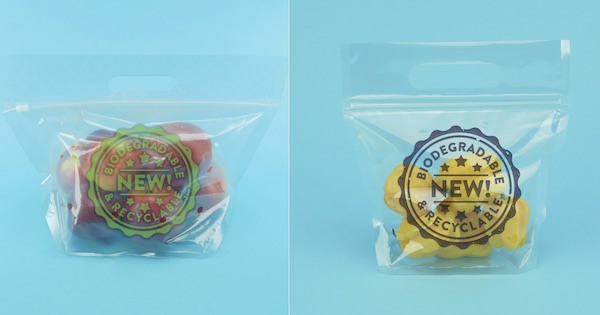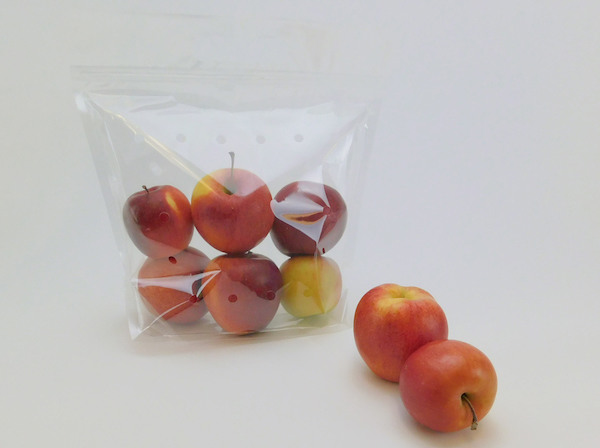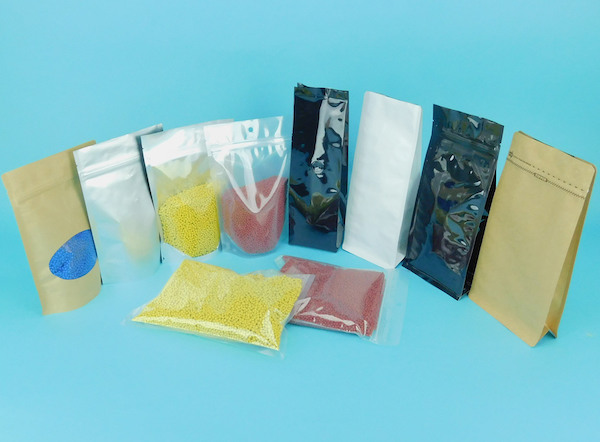The industry demand and the global need for more sustainable packaging solutions has put packaging companies to work on finding ways to offer more environmentally friendly options to their customers. Packaging company First Genesis was founded in 1992 from a small one-car garage in Ontario, Canada. It has now grown into a reputable rubber band importer and a produce pouch manufacturer/procurer. Their newest innovation is a HDPE Recycle #2 Plastic produce pouch that does not compromise the bag’s clarity or strength, which can also be made biodegradable.

Recycle #2 plastic produce pouches
These new pouches are designed to be the next generation plastic produce pouches, shares Chris Lee of First Genesis. “The packaging is a recyclable #2 plastic (High-Density Polyethylene) which is one of the most widely accepted recycling materials that the majority of municipalities across North America can process. Additionally, we can also produce our pouches with a biodegradable additive. In case the pouch does end up in a landfill, the new technology allows it to have a significantly reduced lifespan in the landfill. Trials have revealed the new technology allows the plastic to break down up to 62.5% in under seven months. In comparison, standard plastic would take hundreds of years.”
“Last year, our factory started producing this High Clarity Recycle #2 Plastic pouch for a local grower. The customer supplied their own additive, and we produced the bag for them. The additive does not rely on heat or oxygen to break down the plastic, thus making it an anaerobic solution that attracts bacteria, fungi, and algae to break the material down at a highly accelerated pace. The additive is FDA compliant, safe for food contact and has undergone various third-party tests regarding biodegradable abilities and shelf-life safety,” Lee explains.

Offering the competitive advantage to customers
The pouch is compatible with all types of produce and there is a lot of flexibility in the manufacturing to meet the customer’s needs. “We can do a lot of customization and design, with costs ranging based on the quantity. We can produce pouch sizes from ½ lb. all the way up to 6 lbs., depending on the type of produce. We can print up to nine colors with a print quality of 175-line screen. Images and information printed will be clearer and sharper. Our factory can also produce pouches with Laser Micro Perforated vent holes and custom die cut shape pouches. Customers can also have the freedom to brand the bag however they like to align with their business strategies,” Lee says.
For First Genesis, the goal is to help their customers achieve retail sustainability requirements and to give them a competitive advantage over their competitors through their packaging. “There is a growing demand from large retailers for their vendors to have more sustainable packaging but banning plastics completely is not a viable business solution for everyone. Plastic bags are the most economical, safe, and practical way to transport, store and preserve food products. That is why we came up with a more efficient way to manage plastic waste by ensuring that it is recyclable and biodegradable,” says Lee.

Working on generating interest in the market
As a newly released product, consumer awareness still needs to grow. “We want to educate them about the benefits and future potential of a product like this. Our factory developed the technology to enhance the clarity of the HDPE film substrate to have further applications in produce packaging. With limited control over the end consumer, our job as suppliers is to provide the best product that accounts for the actions the customer could take. We believe recycling plastic is still the number one priority. However, if the plastic does end up in the landfill, making the bag biodegradable and returning the plastic back to the ground is still a better way to manage plastic waste. Not only is this reducing the carbon footprint overall, but the additive also has Biomethane Potential which qualifies its ability to the growing methane collection trend that uses the gases to create new energy. The longevity of single-use plastic has become a growing concern for many consumers, but this new technology offers a viable solution to the plastic crisis,” Lee concludes.
 For more information:
For more information:
Tiffany Chan
First Genesis
Tel: +1 (905)-677-1598
Email: [email protected]
www.sunflowerpkg.com
